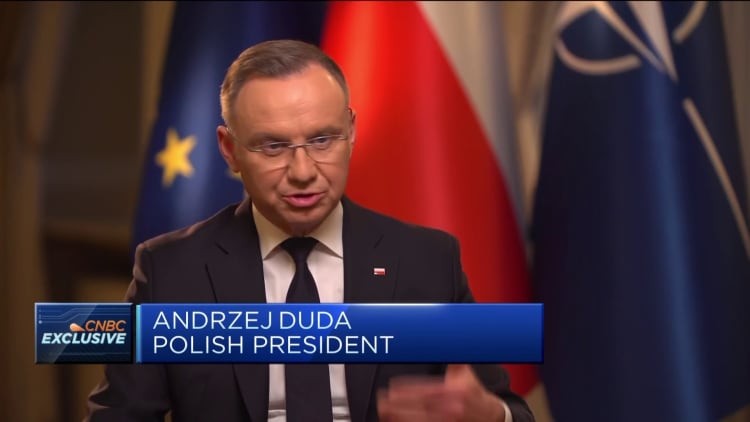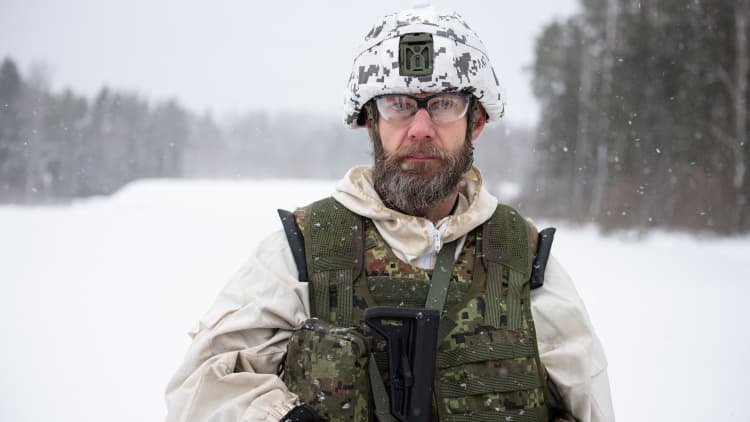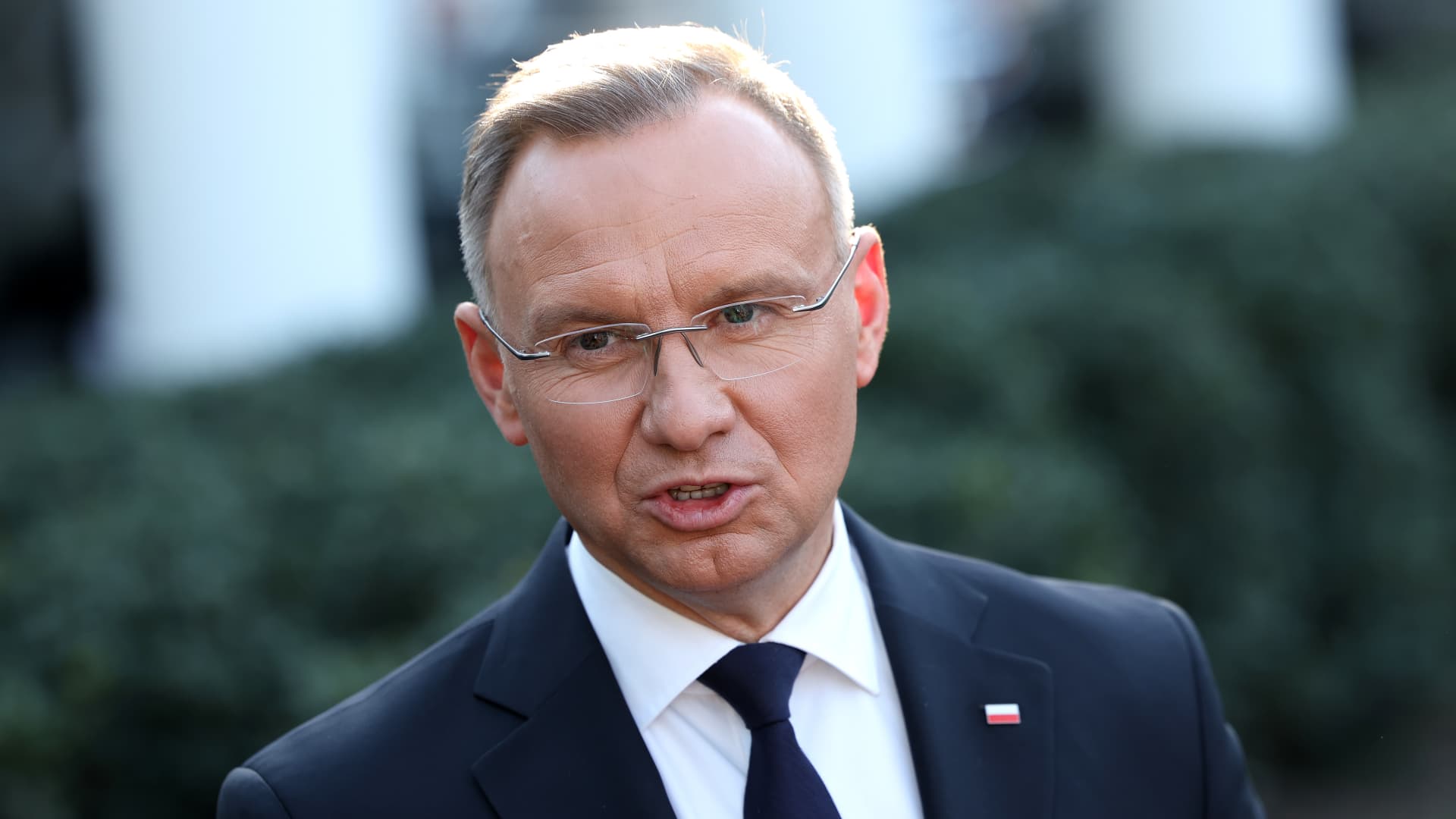Polish President Andrzej Duda speaks to members of the media following a meeting with U.S. President Joe Biden at the White House on March 12, 2024 in Washington, DC.ÂÂ
Kevin Dietsch | Getty Images
Polish President Andrzej Duda said Monday that NATO must urgently increase its defense spending to ensure it does not become the next target of a Russian attack.
Speaking to CNBC, Duda reiterated his calls for NATO members to increase their military contributions to 3% amid new reports that Moscow could be readying to target the military alliance within two to three years.
Citing unspecified German research, Duda said new evidence suggested that Russian President Vladimir Putin is doubling down on his shift toward a war economy with a view to attacking NATO in 2026 or 2027. It follows Danish intelligence reports from February which suggested that Moscow could launch an attack on NATO within three to five years. CNBC was unable to verify the contents of either report.
“The alarm bells are ringing,” he told CNBC’s Steve Sedgwick, according to a translation.
Duda said it was therefore more critical than ever to ramp up the alliance’s military investment, describing his increased spending targets as “common sense.”

“We have two or three years in which we can increase our efforts, stockpile ammunition and produce weapons to maximize European security, get ready and make sure the invasion does not happen,” he said.
“All this needs to be done in order not to have to get involved in a fight. The point is to create such a deterrent that ensures we are not attacked. This is the whole point because none of us want war,” he added.
The Polish president, whose country shares a land border with Ukraine, has spearheaded calls to supply weapons to Kyiv since the onset of Russia’s full-scale invasion.
Poland has also bolstered its own military capabilities, ramping up its defense spending in 2023 to almost 4% of gross domestic product (GDP)  ahead of even the U.S. in percentage terms.
During a meeting with U.S. President Joe Biden last week, Duda called for NATO to raise its minimum military spending target to 3% of GDP to further strengthen the alliance’s defenses.
Currently, NATO allies are expected to contribute 2% of GDP to defense, a threshold that 18 member states are on track to meet this year. Sweden became the 32nd member of the transatlantic military alliance earlier this month.
Duda was visiting the U.S. with Polish Prime Minister Donald Tusk, marking a rare show of unity between the political adversaries, who remain deeply divided on domestic issues despite their shared calls for improved European security.
Tusk warned that failure by the U.S. House of Representatives to pass a $60 billion aid package for Ukraine could put “thousands of lives” at risk and further embolden Putin’s offensive in Ukraine and beyond.
Asked Monday whether the holdup in Congress was providing a boost to Putin, Duda would not be held. However, he said that “every dollar” donated to Ukraine staves off a Russian victory.
“This Russian aggression has to be stopped at all cost. If it’s not stopped it will spill over and then, I fear U.S money won’t be enough to stop Russia, U.S. soldiers will have to step in and no one wants that,” he added.

Duda and Tusk have been embroiled in a months’ long political spat since the latter was returned to office late last year after nearly a decade out of power.
Since entering office in December, Tusk, a centrist, has embarked on a series of pro-EU reforms and a purge of staff associated with the former nationalist Law and Justice (PiS) party, which Brussels has accused of undermining the rule of law. That has sparked backlash from Duda, a former PiS member who was brought to office with the party’s backing and who has offered presidential pardons to jailed PiS lawmakers.
However, Duda said that in matters pertaining to Poland’s security, he and Tusk must speak with one voice.
“It’s obvious to me that we must speak with one voice and that our aspirations must be the same. We want Poland to be as safe as possible,” he said.
In Poland, the prime minister is responsible for government decision-making, while the president is the head of state and supreme representative of Poland internationally.
Read the original article here


